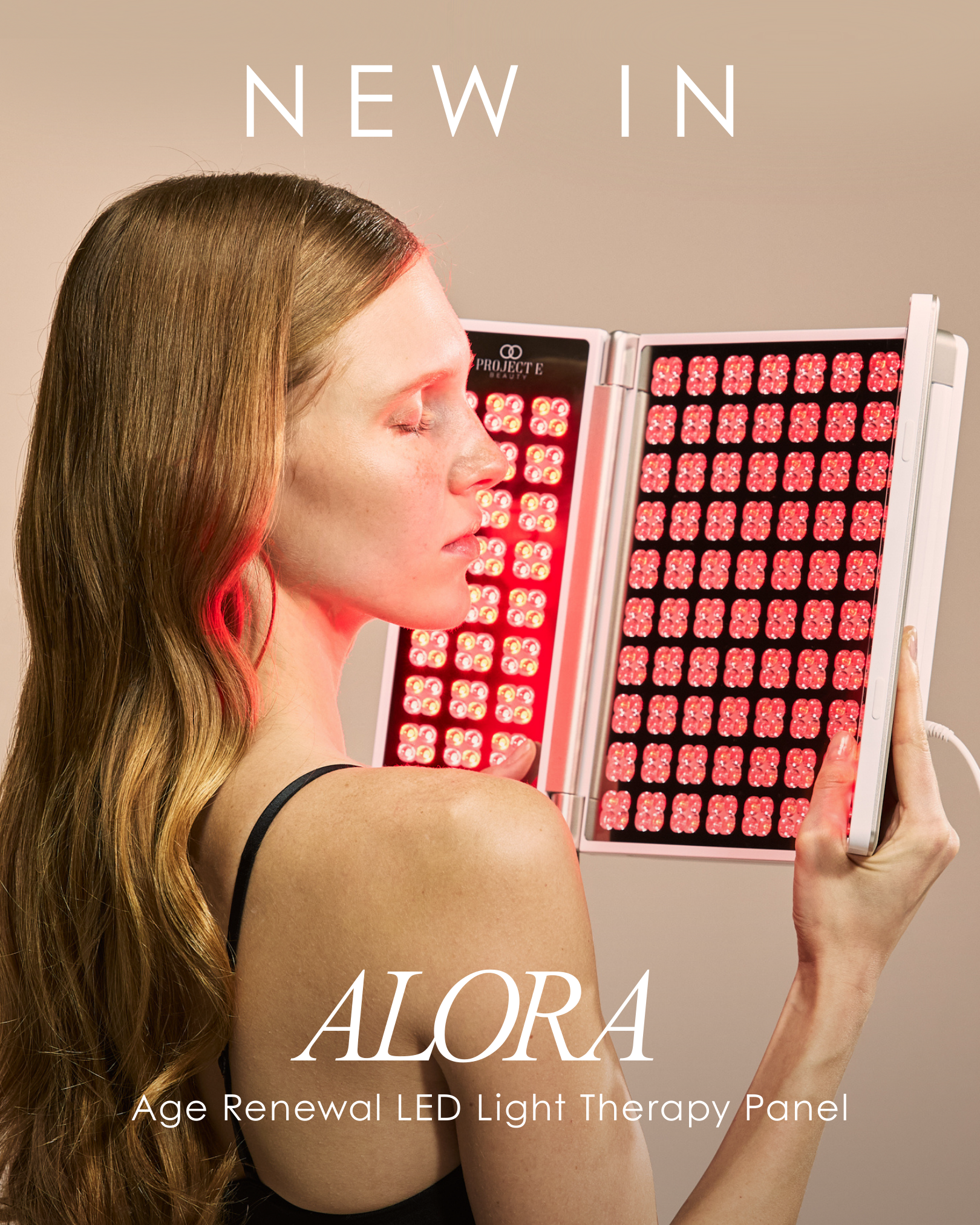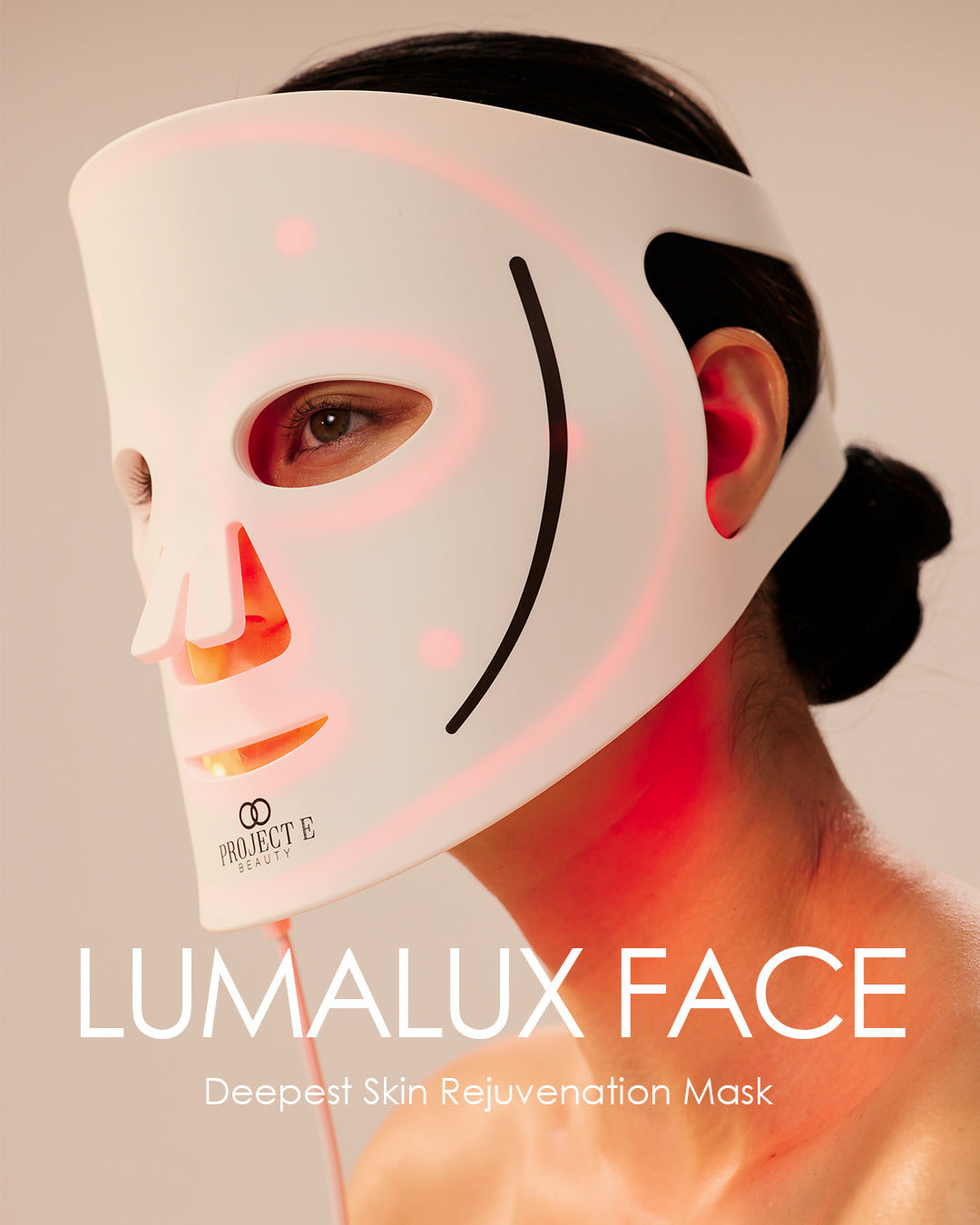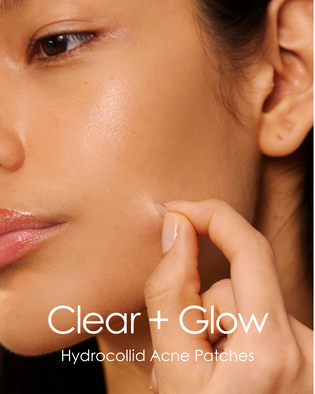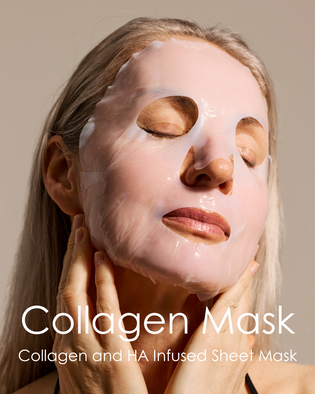
Everything You Need to Know About Collagen Banking
IN THIS ARTICLE:
- 01 What is Collagen?
- 02 Why is Collagen Important?
- 03 How to Collagen Bank?
- 04 The Takeaway: What is Collagen Banking?
5-minute read

What is Collagen Banking?
It’s useful to think of collagen banking as an investment portfolio for your skin – future-proofing your complexion by maintaining and boosting collagen in the skin *before* it starts to decline.
Collagen is the skin's main structural protein responsible for the plump, smooth complexion characteristic of teens and young adults. The more collagen you have, the slower fine lines and other signs of aging appear. This is why it is important to start to ‘bank’ or ‘reserve’ collagen from your early to mid-twenties to stave off signs of premature aging and maintain a youthful glow.
What is Collagen?
Collagen is the most abundant protein in the body, it forms not only the structural basis for the skin, but also nails, hair, bones, cartilage blood vessels, and more. Interestingly, it comes from the Greek word kolla, meaning ‘glue’ – a reference to how it binds together to preserve the structural integrity of these body parts.
Why is Collagen Important?
Approximately 30% of the body's protein is collagen. Collagen is integral in many physiological processes such as new cell growth, hair, and nail growth, replacing dead skin cells, blood clotting, and providing support for joints, bones, skin, ligaments, and tendons. With age, our body’s natural ability to produce collagen begins to decline with an estimated 1% of collagen lost to the natural aging process per year after the age of 25. Strengthening collagen stores before and as we age is important for bone health, mobility, heart health and also to maintain skin elasticity and slow wrinkle formation.
How to Collagen Bank?
-
Red Light Therapy -

Red light therapy is one of the most effective ways to maintain collagen and the primary mechanism by which red light therapy supports healthy aging. Red light wavelengths essentially act as an energy source for the cell, encouraging it to perform as a younger cell would. The application of red light creates fibroblasts, the cells responsible for synthesizing collagen and extracellular matrix components. Collagen banking with red light therapy is as easy as investing in a high-quality mask, wand, or full-body device and using it for the recommended treatment time at least 3-5 times per week.
LumaLux Face | Pro LED Light Therapy Mask
Our most advanced LED mask for deeper skin renewal - fine lines, acne, hyperpigmentation, skin texture
2. Collagen Supplements
Supplementing oral collagen is hugely effective for boosting collagen stores. Collagen supplements are available in powder, gummies, capsules, or liquid form, but the quality of the product is hugely important to ensure proper absorption.
Arella Beauty’s Vegan Liquid Collagen Supplement - is formulated with the world’s first plant-based collagen supplement - VeCollal®. The innovative formula is a biometric collagen alternative, which means it creates an identical amino acid profile to human collagen. Whereas animal and marine collagen amino acid profiles are similar to humans, VeCollal® is exactly the same.
An effective collagen supplement supplies you with enough of the protein to optimise collagen’s role in the body. This includes muscle building and repair, providing flexibility and strength to your joints, and enhancing elasticity in your skin. Collagen also gives structure to artery walls, allowing a strong and healthy blood flow for better energy, sleep, and focus.
3. Diet
Yes, we can eat our collagen. It is one of the most cost-effective ways to ensure our skin stays plump and smooth as we age. Collagen-rich foods include nuts, seeds, salmon, dark leafy greens, bone broth, eggs, beef, and chicken.
4. Controlling Stress
There is a clear link between stress and collagen decline. We know stress affects almost every physiological process in the body, but sometimes it’s not clear how. Stress releases the ‘stress hormone’ cortisol which accelerates collagen breakdown. Yoga, meditation, breathwork, exercise, and connection with others are expert ways to control stress daily and protect our precious collagen stores.
5. Sleep
Collagen banking is all about supporting skin regeneration and repair. Now more than ever, it is clear that the term ‘beauty sleep’ is far more than an old wives tale – it’s firmly rooted in evidence. As we sleep, we produce a growth hormone that supports skin regeneration. Getting 7-9 hours of sleep (maybe even more) is one of the most important and accessible ways to rejuvenate our skin and prevent premature collagen loss.
Microneedling is also referred to as 'collagen induction therapy' which pretty much tell us all we need to know about this wonder therapy. Whether you perform microneedling in-clinic or use a dermarolling tool at home, the concept remains the same – tiny needles create microscopic wounds in the skin. These wounds trigger the skin repair process signally the body to produce more collagen as it regenerates.
7. Sun Protection
UVA and UVB rays from the sun are the leading cause of collagen decline. Ensuring you are using a high-quality SPF (even in winter) and reapplying every 2 hours when in the sun is essential. Collagen banking is all about preserving collagen *before* declines and although SPF may be a less glamorous step, it is a non-negotiable in any anti-aging skincare routine.
8. Vitamin C
Like collagen, vitamin C is naturally present in the skin’s keratinocytes, but its levels decline as we age. Vitamin C is an antioxidant–when applied topically, it neutralizes free radicals in our environments, such as pollution, inflammation, and ionizing radiation. Maintaining a focus on vitamin C in your diet is also vital for skin health, especially when taking an oral collagen supplement. Vitamin C plays a crucial role in regulating the production of collagen and is clinically proven to increase type I collagen synthesis and reduce oxidative stress parameters.
Arella’s Liquid Collagen Supplement is bursting with vitamin C, which contains essential amino acids to synthesise collagen. The vitamin enhances collagen fibres, speeding up things like cell turnover and defending against oxidative stress.
Combining your collagen supplement with vitamin C and embracing a vitamin C-rich diet, including citrus fruits, red vegetables, leafy greens, and fortified foods, is a wonderful way to preserve collagen and keep your skin glowing.
Other collagen-supporting topicals include retinoids (vitamin A derivatives) used to treat acne and stimulate collagen production. Retinol, the most common vitamin A derivative, should form the basis of any anti-aging skincare routine. Retinol is a science-backed skincare essential, especially from our mid-twenties onwards — it boosts collagen production, refines skin texture, combats acne, and softens fine lines.
The Takeaway: What is Collagen Banking?
Collagen banking is a form of ‘preventative’ skincare, it is all about being proactive - while collagen decline is inevitable, proper skincare practices and lifestyle choices can slow down the aging process and stimulate new collagen to maintain a youthful appearance. Collagen is a hallmark of elastic, supple, and youthful skin. From red light therapy and microneedling to oral supplements and targeted topicals, there are a variety of ways to help prevent collagen loss before it begins.

 written by Charlotte Rycroft
written by Charlotte Rycroft














Leave a comment
This site is protected by hCaptcha and the hCaptcha Privacy Policy and Terms of Service apply.